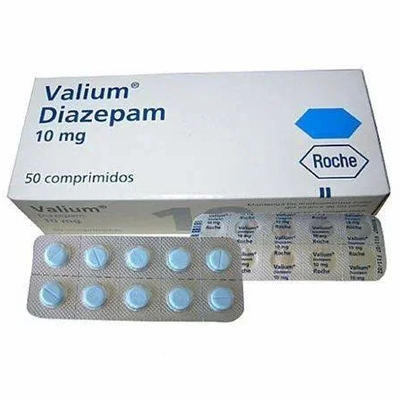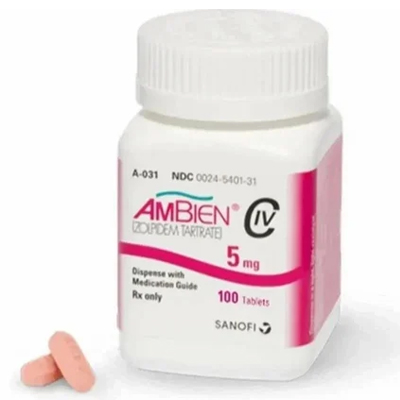Description
What is Valium 5mg?
Valium, the brand name for diazepam, is a prescription medication commonly used to treat anxiety disorders, muscle spasms, seizures, and alcohol withdrawal symptoms. It belongs to a class of drugs called benzodiazepines, which act on the brain and central nervous system (CNS) to produce a calming effect. The 5mg dose of Valium is one of the most commonly prescribed strengths, suitable for managing moderate anxiety, muscle tension, and other related conditions. Diazepam has been used in medicine since the 1960s and remains widely prescribed due to its effectiveness and versatility.
How Valium Works?
Valium works by enhancing the activity of gamma-aminobutyric acid (GABA), a neurotransmitter in the brain that naturally reduces nerve activity. GABA has an inhibitory function—it helps slow down brain activity and relax the nervous system.
By increasing GABA’s effects, Valium promotes:
- Relaxation
- Drowsiness
- Reduced anxiety
- Relief from muscle spasms
These effects make it useful not only for anxiety, but also for calming the brain during seizures, reducing agitation, and managing withdrawal symptoms in people detoxing from alcohol.
What is Valium 5mg Used For?
The 5mg tablet of Valium is prescribed for various medical conditions, including:
- Generalized Anxiety Disorder (GAD): Helps reduce constant worry, restlessness, and irritability.
- Muscle Spasms: Relieves involuntary muscle tightness and pain caused by injury or neurological conditions.
- Seizure Disorders: Often used alongside other anticonvulsants to manage seizures.
- Alcohol Withdrawal: Eases symptoms like tremors, agitation, and delirium during detox.
- Sleep Disturbances (off-label): May help people with insomnia, particularly when anxiety is a factor.
- Sedation Before Medical Procedures: Used to calm patients before surgeries or dental work.
Dosage and Administration
Valium comes in multiple strengths, but 5mg tablets are often the starting dose for adults. The exact dose depends on the condition being treated, the patient’s response, and any underlying health conditions.
Typical Dosing Guidelines:
- Anxiety: 2 to 10 mg, 2 to 4 times daily
- Muscle spasms: 5 to 10 mg, 3 to 4 times daily
- Seizures: 2 to 10 mg, 2 to 4 times daily
- Alcohol withdrawal: 10 mg every 6–8 hours in the first 24 hours, then 5 mg as needed
- Elderly or debilitated patients: Start at 2 mg to reduce the risk of sedation and falls
Tablets are usually taken by mouth, with or without food. For best results, follow your doctor’s instructions and avoid self-adjusting the dose.
Possible Side Effects
Valium is generally well-tolerated when used short-term and as prescribed. However, like all medications, it can cause side effects.
Common Side Effects:
- Drowsiness
- Fatigue or weakness
- Dizziness
- Blurred vision
- Slurred speech
- Poor coordination
Less Common but Serious Side Effects:
- Memory problems
- Mood changes (depression, irritability, aggression)
- Trouble breathing
- Confusion or hallucinations
- Seizures (especially if stopped abruptly)
- Liver problems (rare)
Seek immediate medical help if you experience shortness of breath, chest pain, or signs of an allergic reaction (swelling, rash, itching).
Dependence and Withdrawal
Valium 5mg can cause physical and psychological dependence, especially if taken in high doses or for long periods. Benzodiazepines, including diazepam, are classified as Schedule IV controlled substances because of their abuse potential.
Signs of Dependence:
- Needing higher doses for the same effect
- Craving the medication
- Feeling unwell without it
- Using it for emotional relief rather than medical need
If stopped suddenly after regular use, withdrawal symptoms may occur, including:
- Anxiety
- Sweating
- Tremors
- Irritability
- Nausea or vomiting
- Seizures (in severe cases)
To avoid these issues, doctors recommend gradually tapering the dose over time when discontinuing Valium.
Precautions and Warnings
Before taking Valium 5mg, inform your doctor if you have any of the following:
- History of substance use disorder
- Liver or kidney disease
- Breathing problems (e.g., sleep apnea, COPD)
- Depression or mental illness
- Glaucoma
Special Populations:
- Elderly: May be more sensitive to side effects like confusion and falls.
- Pregnancy: Valium can harm an unborn baby and may cause neonatal withdrawal or breathing problems in newborns.
- Breastfeeding: Diazepam may pass into breast milk and affect the baby.
Interactions
Valium 5mg can interact with a variety of medications and substances. Combining it with other CNS depressants can increase the risk of dangerous side effects, such as respiratory depression and coma.
Avoid Combining With:
- Alcohol
- Opioid pain medications (e.g., oxycodone, morphine)
- Sleep aids (e.g., zolpidem)
- Antidepressants
- Antihistamines (e.g., diphenhydramine)
Always tell your doctor about all medications, supplements, and herbal remedies you are taking.
Buying Valium Online?
Valium is a prescription-only drug. You should only purchase it through a licensed pharmacy with a doctor’s approval. Buying Valium 5mg online without a prescription is illegal and risky, as counterfeit pills can contain harmful or unknown ingredients.
Conclusion
Valium 5mg is a well-established medication used to treat a range of conditions, from anxiety and muscle spasms to seizures and alcohol withdrawal. Its effectiveness and fast-acting nature make it a helpful option for many patients.
However, it must be used responsibly under the guidance of a healthcare provider. Due to the risk of addiction, tolerance, and withdrawal, Valium should not be used long-term unless absolutely necessary. If prescribed, it’s important to follow dosage instructions carefully and avoid mixing it with alcohol or other sedatives.
With the right approach, Valium 5mg can be a safe and effective tool in managing anxiety and other neurological conditions.






Reviews
There are no reviews yet.